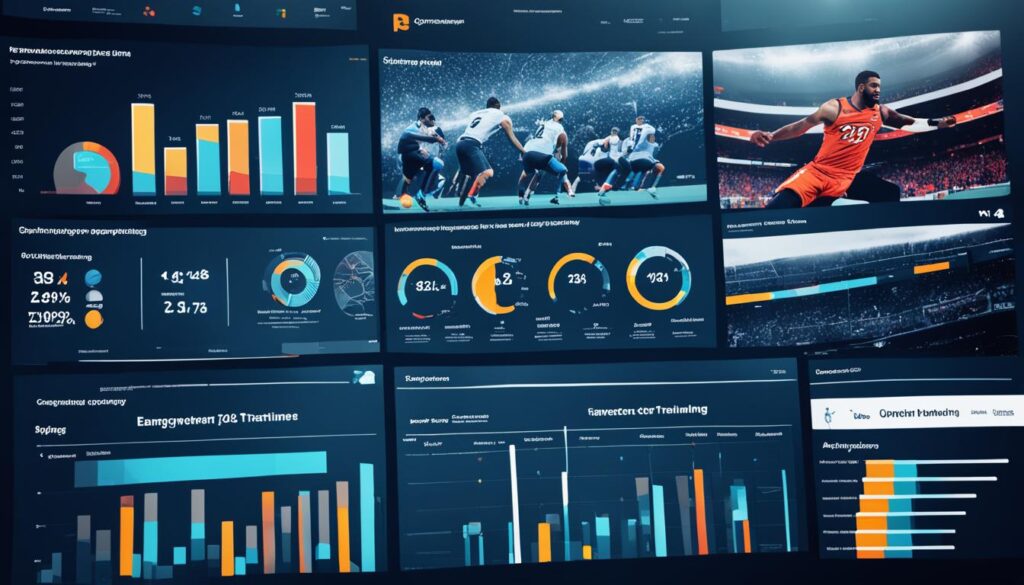The Hookup Dossier: Your Ultimate Guide to Modern Dating
Explore the ins and outs of dating, relationships, and modern romance.
Game Changers: How Player Data Insights Are Shaping the Future of Sports
Unleash the future of sports! Discover how player data insights are transforming gameplay and revolutionizing fan experiences in Game Changers.
Unlocking the Power of Player Data: Transforming Sports Analysis
Unlocking the power of player data has revolutionized the landscape of sports analysis, enabling teams and coaches to make data-driven decisions that enhance performance. By leveraging advanced analytics, organizations can track player metrics such as speed, endurance, and even cognitive reaction times. This detailed dataset allows for a deeper understanding of a player's impact on the game, aiding in everything from game strategy to recruitment. With tools such as AI and machine learning, teams can uncover hidden patterns and correlations that were previously overlooked, providing a significant competitive edge.
Moreover, the integration of player data analytics into sports not only focuses on performance improvements but also enhances fan engagement. By utilizing real-time data during broadcasts, fans gain insights into player statistics and game strategies that elevate their viewing experience. Teams can utilize this data to tailor marketing strategies and build targeted campaigns, ensuring that they connect effectively with their audience. As the sports industry continues to embrace this data-centric approach, the potential for transforming sports analysis will only expand, creating more opportunities for innovation and growth.

Counter-Strike is a highly popular first-person shooter (FPS) game that has captivated millions of players around the world. The game features team-based gameplay where players can choose to be terrorists or counter-terrorists, engaging in various missions such as bomb defusal and hostage rescue. For those interested in enhancing their gaming experience, you can find a duel promo code that can provide exciting perks and benefits.
The Evolution of Sports Performance: How Data Insights Are Driving Success
The landscape of sports performance has undergone significant changes over the years, largely driven by the advent of data insights. Gone are the days when athletes solely relied on intuition and traditional training methods to achieve their peak performance. Today, teams and coaches leverage advanced analytics and data-driven techniques to optimize training regimens and game strategies. By analyzing biometric data, player statistics, and even environmental factors, sports organizations can make informed decisions that greatly enhance an athlete's chances of success.
Moreover, the integration of technology in sports training has allowed for a precise understanding of performance metrics. Coaches can now assess players through wearables that monitor everything from heart rates to recovery times. With these data insights, adjustments can be made in real-time, enabling athletes to push their limits safely. This shift not only improves individual performance but also fosters a more competitive and strategically advanced environment within sports teams, marking a new era of excellence driven by data intelligence.
What Role Does Player Data Play in Shaping Winning Strategies?
In today's competitive landscape of esports and traditional sports alike, player data has emerged as a critical component in shaping winning strategies. Coaches and analysts are leveraging advanced metrics and analytics to assess player performance, strengths, and weaknesses. By analyzing data points such as shooting accuracy, player movements, and reaction times, teams can develop tailored strategies that maximize their chances of success. For instance, a basketball coach might use player data to identify which players perform best in clutch situations, thereby making informed decisions about play-calling during pivotal moments of a game.
Furthermore, the role of player data extends beyond mere performance evaluation; it also aids in injury prevention and player development. By monitoring physical metrics such as heart rate, fatigue levels, and recovery times, teams can make data-driven decisions regarding training regimens and rest periods. This holistic approach not only enhances individual player performance but also fosters a culture of long-term success within the team. Ultimately, the strategic integration of player data into decision-making processes is what sets successful teams apart from their competitors.